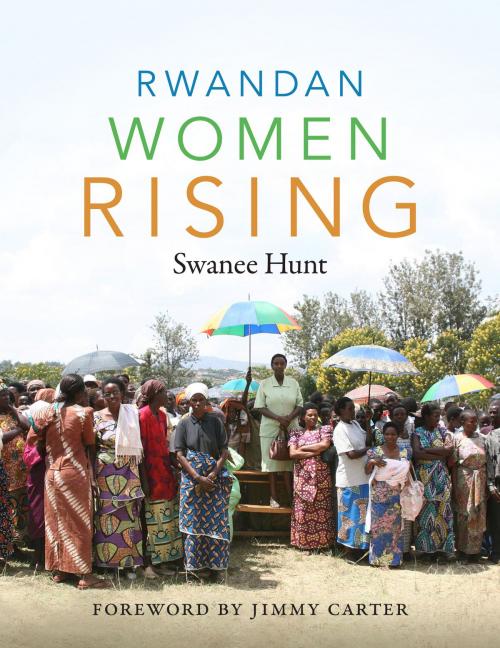Rwandan Women Rising
Nonfiction, History, Africa, Social & Cultural Studies, Social Science, Gender Studies, Women&| Author: | Swanee Hunt | ISBN: | 9780822373568 |
| Publisher: | Duke University Press | Publication: | May 18, 2017 |
| Imprint: | Duke University Press Books | Language: | English |
| Author: | Swanee Hunt |
| ISBN: | 9780822373568 |
| Publisher: | Duke University Press |
| Publication: | May 18, 2017 |
| Imprint: | Duke University Press Books |
| Language: | English |
In the spring of 1994, the tiny African nation of Rwanda was ripped apart by a genocide that left nearly a million dead. Neighbors attacked neighbors. Family members turned against their own. After the violence subsided, Rwanda's women—drawn by the necessity of protecting their families—carved out unlikely new roles for themselves as visionary pioneers creating stability and reconciliation in genocide's wake. Today, 64 percent of the seats in Rwanda's elected house of Parliament are held by women, a number unrivaled by any other nation.
While news of the Rwandan genocide reached all corners of the globe, the nation's recovery and the key role of women are less well known. In Rwandan Women Rising, Swanee Hunt shares the stories of some seventy women—heralded activists and unsung heroes alike—who overcame unfathomable brutality, unrecoverable loss, and unending challenges to rebuild Rwandan society. Hunt, who has worked with women leaders in sixty countries for over two decades, points out that Rwandan women did not seek the limelight or set out to build a movement; rather, they organized around common problems such as health care, housing, and poverty to serve the greater good. Their victories were usually in groups and wide ranging, addressing issues such as rape, equality in marriage, female entrepreneurship, reproductive rights, education for girls, and mental health.
These women's accomplishments provide important lessons for policy makers and activists who are working toward equality elsewhere in Africa and other postconflict societies. Their stories, told in their own words via interviews woven throughout the book, demonstrate that the best way to reduce suffering and to prevent and end conflicts is to elevate the status of women throughout the world.
In the spring of 1994, the tiny African nation of Rwanda was ripped apart by a genocide that left nearly a million dead. Neighbors attacked neighbors. Family members turned against their own. After the violence subsided, Rwanda's women—drawn by the necessity of protecting their families—carved out unlikely new roles for themselves as visionary pioneers creating stability and reconciliation in genocide's wake. Today, 64 percent of the seats in Rwanda's elected house of Parliament are held by women, a number unrivaled by any other nation.
While news of the Rwandan genocide reached all corners of the globe, the nation's recovery and the key role of women are less well known. In Rwandan Women Rising, Swanee Hunt shares the stories of some seventy women—heralded activists and unsung heroes alike—who overcame unfathomable brutality, unrecoverable loss, and unending challenges to rebuild Rwandan society. Hunt, who has worked with women leaders in sixty countries for over two decades, points out that Rwandan women did not seek the limelight or set out to build a movement; rather, they organized around common problems such as health care, housing, and poverty to serve the greater good. Their victories were usually in groups and wide ranging, addressing issues such as rape, equality in marriage, female entrepreneurship, reproductive rights, education for girls, and mental health.
These women's accomplishments provide important lessons for policy makers and activists who are working toward equality elsewhere in Africa and other postconflict societies. Their stories, told in their own words via interviews woven throughout the book, demonstrate that the best way to reduce suffering and to prevent and end conflicts is to elevate the status of women throughout the world.















